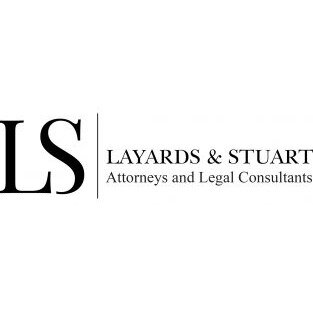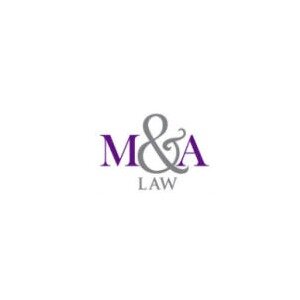Best ESG Advisory & Compliance Lawyers in Sri Lanka
Share your needs with us, get contacted by law firms.
Free. Takes 2 min.
Or refine your search by selecting a city:
List of the best lawyers in Sri Lanka
About ESG Advisory & Compliance Law in Sri Lanka
Environmental, Social, and Governance (ESG) advisory and compliance involve a set of legal and regulatory practices that encourage businesses and organizations to operate responsibly and sustainably. In Sri Lanka, ESG is becoming increasingly important as both local and international stakeholders pay closer attention to sustainable business practices, ethical governance, environmental protection, and social responsibility. Legal professionals in this area help businesses navigate the intricate landscape of ESG requirements, reporting obligations, and compliance standards to ensure that organizations not only meet legal requirements but also align with global best practices.
Why You May Need a Lawyer
Seeking legal advice for ESG advisory and compliance in Sri Lanka can be crucial for a variety of situations. Legal representation or consultation may be necessary if you are facing regulatory scrutiny regarding environmental standards, require assistance developing or implementing ESG reporting frameworks, or need help understanding the legal ramifications of non-compliance with social or governance standards. Lawyers can also provide guidance for mergers and acquisitions that require ESG risk assessments, help address shareholder or stakeholder concerns, and advise on how to embed ESG considerations into overall corporate strategy. Proactive legal assistance can protect your organization from penalties, reputational risks, and ensure long-term business sustainability.
Local Laws Overview
ESG compliance in Sri Lanka is grounded in several local laws and regulations, although there is no single, unified ESG statute. Environmental regulations such as the National Environmental Act set standards for pollution control and environmental impact assessments. Social compliance touches on labor laws, health and safety statutes, and fair employment practices, such as the Shop and Office Employees (Regulation of Employment and Remuneration) Act and the Factories Ordinance. Governance obligations come under the Companies Act, anti-corruption guidelines, and codes of corporate governance issued by regulatory authorities like the Securities and Exchange Commission of Sri Lanka. Increasingly, listed companies must adhere to mandatory and voluntary reporting requirements regarding their ESG practices, often aligning with international standards.
Frequently Asked Questions
What does ESG advisory cover in Sri Lanka?
ESG advisory in Sri Lanka typically covers legal and strategic guidance on environmental protection, social responsibility including labor standards and community engagement, and governance best practices such as board composition, ethical conduct, and anti-corruption measures.
Is ESG compliance mandatory for all businesses in Sri Lanka?
While some ESG-related requirements are mandatory, especially for listed and larger companies, many standards are still evolving and may be voluntary. However, there is increasing pressure from investors and regulators for businesses to publicly report on ESG issues.
What are the common ESG compliance challenges faced by Sri Lankan businesses?
Common issues include understanding disparate local and international standards, reporting obligations, integrating ESG factors into core business strategies, and keeping up with evolving regulations and stakeholder expectations.
How do I know if my business complies with Sri Lankan ESG laws?
A legal audit or review with an ESG-experienced lawyer can help you assess compliance with local laws regarding the environment, labor, anti-bribery, and corporate governance, as well as adherence to applicable international frameworks.
Can I be penalized for failing to comply with ESG standards?
Yes, non-compliance with specific legal requirements can lead to regulatory penalties, lawsuits, or reputational risks, especially in areas like environmental protection or labor standards.
What is the role of the Securities and Exchange Commission of Sri Lanka in ESG?
The Securities and Exchange Commission has issued guidelines and codes of best practices for listed entities, encouraging ESG disclosures and adherence to international standards.
How are ESG factors integrated into corporate governance?
ESG factors are integrated through board oversight, the establishment of ESG policies, regular risk assessments, compliance programs, and transparent reporting mechanisms.
Does Sri Lanka have any international ESG obligations?
Sri Lanka is a party to several international conventions and agreements in areas like environmental protection, labor rights, and anti-corruption, which influence local ESG practices.
Do small and medium enterprises (SMEs) need to comply with ESG regulations?
While SMEs may face fewer direct legal requirements, there is increasing commercial value in aligning with ESG principles, especially to attract investment, partners, and customers who value sustainability and ethics.
What kind of documentation is required for ESG compliance?
Required documentation may include environmental impact assessments, sustainability reports, labor records, corporate governance policies, anti-bribery procedures, and stakeholder engagement reports, among others.
Additional Resources
Some useful resources and organizations for ESG advisory and compliance in Sri Lanka include the Securities and Exchange Commission of Sri Lanka, the Central Environmental Authority, the Ministry of Environment, the Labour Department, and local chapters of professional advisory organizations. International resources such as the United Nations Global Compact and the International Finance Corporation's ESG guides can also provide valuable global perspectives and frameworks.
Next Steps
If you require legal assistance for ESG advisory and compliance in Sri Lanka, begin by identifying your specific needs - whether it's regulatory compliance, reporting, risk assessment, or stakeholder engagement. Collect relevant documentation and business policies for review. Reach out to a qualified lawyer or legal firm with expertise in ESG matters, preferably those who have experience in advising businesses within your sector. An initial consultation can help you understand your legal position, identify areas of improvement, and create a clear plan for ongoing compliance and sustainable business growth.
Lawzana helps you find the best lawyers and law firms in Sri Lanka through a curated and pre-screened list of qualified legal professionals. Our platform offers rankings and detailed profiles of attorneys and law firms, allowing you to compare based on practice areas, including ESG Advisory & Compliance, experience, and client feedback.
Each profile includes a description of the firm's areas of practice, client reviews, team members and partners, year of establishment, spoken languages, office locations, contact information, social media presence, and any published articles or resources. Most firms on our platform speak English and are experienced in both local and international legal matters.
Get a quote from top-rated law firms in Sri Lanka — quickly, securely, and without unnecessary hassle.
Disclaimer:
The information provided on this page is for general informational purposes only and does not constitute legal advice. While we strive to ensure the accuracy and relevance of the content, legal information may change over time, and interpretations of the law can vary. You should always consult with a qualified legal professional for advice specific to your situation.
We disclaim all liability for actions taken or not taken based on the content of this page. If you believe any information is incorrect or outdated, please contact us, and we will review and update it where appropriate.
Browse esg advisory & compliance law firms by city in Sri Lanka
Refine your search by selecting a city.

















